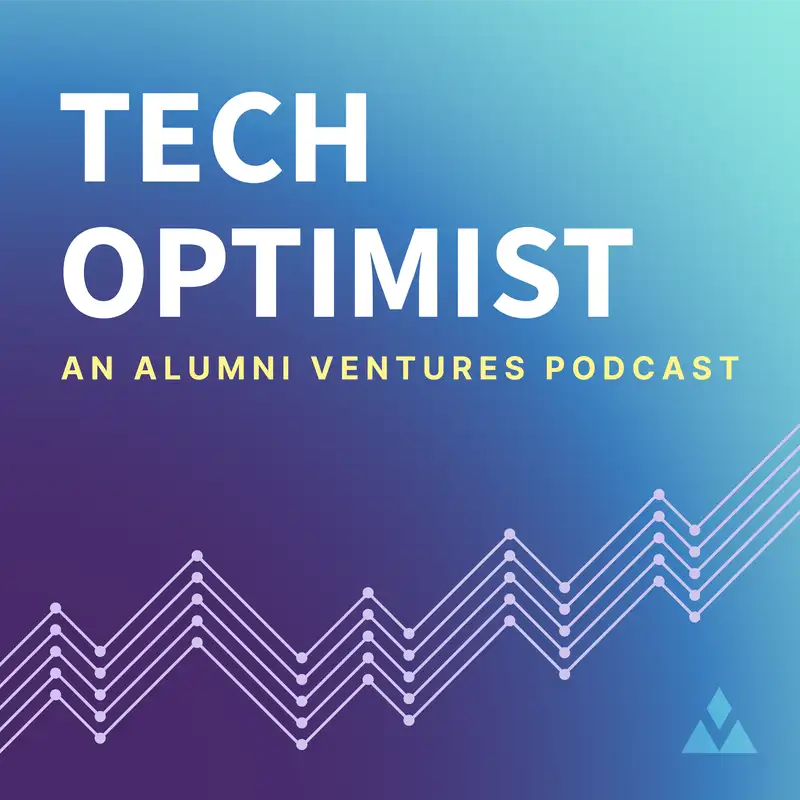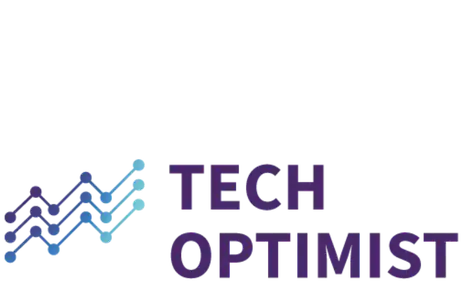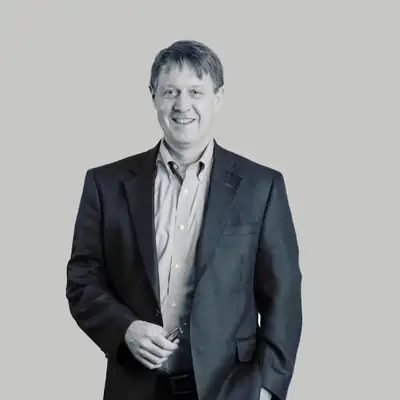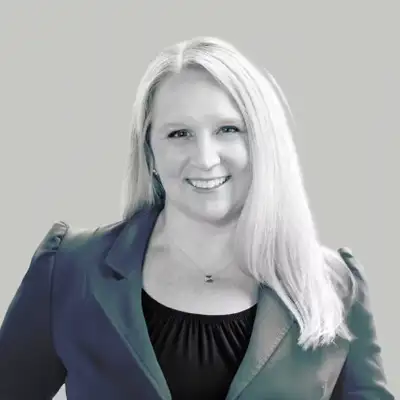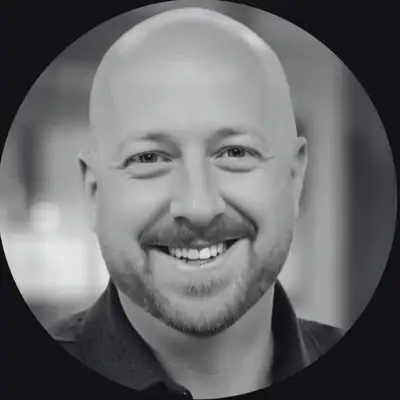#89 - Three Breakthroughs: The Future of Fighting Wildfires
Samantha Herrick:
Welcome to the Tech Optimist, where we don't just discuss the future. We step right into it. I'm Samantha Herrick, your guide on this journey to discovery, invention, and transformation. Today's Three Breakthroughs episode brings you three pivotal moments in tech and science that are changing how we think, live, and create. These are the kinds of stories that remind us why innovation fuels optimism. Curious? Let's dive into breakthrough number one.
Before we dive into the first breakthrough, though, let's take a quick pause. Innovation doesn't happen in a vacuum, and neither does this show, so we're going to take a second for a quick word for the sponsors and a few internal AV funds. So, hang tight.
Speaker 2:
Do you have a venture capital portfolio of cutting edge startups? Without one, you could be missing out on enormous value creation and a more diversified personal portfolio. Alumni Ventures, ranked a top 20 VC firm by CVInsight, is the leading VC firm for individual investors. Believe in investing and innovation? Visit av.vc/foundation to get started.
Samantha Herrick:
As a reminder, the Tech Optimist podcast is for the informational purposes only. It is not personalized advice, and it is not an offer to buy or sell securities. For additional important details, please see the text description accompanying this episode.
Welcome, tech enthusiasts to this special episode of the Tech Optimist. Today, we're diving into three groundbreaking breakthroughs shaping the world as we know it.
Mike Collins:
Hi. Welcome to Three Breakthroughs, the Alumni Ventures podcast where founder and CEO, Mike Collins, gets together with one of our smart young people to talk about what's going on in technology. This quarter, I'm joined by Lucas. Hi, Lucas.
Lucas:
Hi, Mike. Great to be with you again.
Samantha Herrick:
First, we're diving into OpenAI's game-changing Tasks, a new feature poised to transform productivity and take us closer to the future of AI agents. Imagine AI handling complex workflow seamlessly. It's not as far off as you think.
Next, we shift gears to tackle one of our planet's most urgent challenges, wildfires. Tech innovators are stepping up with AI-powered cameras and fire-fighting robots, revolutionizing how we predict and respond to these devastating natural disasters. It's climate tech at its finest, building resilience and saving many lives.
Finally, we're going to delve into the mind, literally. Cutting edge advancements in neuroscience, like lab-grown microglia and regenerative medicine are pushing the boundaries of brain health. These breakthroughs could unlock new treatments of neurodegenerative diseases and even enable brain regeneration. Yes, you heard that right. This is innovation at its boldest. Get ready to explore the future. It's starting right now.
Mike Collins:
I wanted to kick off this week again, no surprise, talking about AI. Just a couple of things I think that are in the news that our customers, portfolio companies, may have heard of, but if not, should know about. Again, just, I think it's the first... OpenAI came out this week with Tasks, which is, seems like a small, kind of trivial announcement, which is, oh, these are things I could do with my iPhone, reminders, those kinds of things, not terribly complicated, but I think it's much more meaningful than that. I think that this is the first baby step toward agents, and I think it is actually a really nice chess move, if you can get people to take what is basically the most simple agent function you can, and get people just to start thinking this way and playing with it.
For example, I created several agents myself. One is to once a week pull news from the previous week related to GLP-1 weight loss drugs. It's an area of interest for me, investment, opportunity for me, and there's announcements that I may have missed about semaglutide or regulatory changes or insurance things or, in particular, I'm very interested in new drugs in the pipeline and news I may have missed. Again, you can do this three different ways, but in the spirit of I want to hop onto AI early, I created a task where every Thursday that OpenAI is going to go search the web, do this, consolidate it, give me a news summary, and then hit my inbox with it. It asked for permission to do that, worked very slick.
But I think Tasks are a baby step toward, oh, the next thing it's going to do is it's going to start doing things on other websites, pulling data, making actions. But in the spirit of walking before you run, I think this could be an eye-roll when you hear about it or try it out, but I think there's something deeper at work.
Lucas:
I think there's also something really elegant about OpenAI's strategy in that regard. It's a baby step, I think, not because they need to take a baby step, but they have always been, for a few years now, on the cutting edge of bringing the general public up to speed with what AI could do, and I think this is a way of doing that. Like you said, you're introducing an AI agent essentially in these pretty menial tasks, but they are accessible to the broad public. For me, I had played around a lot over the years with Zapier and trying to develop my own personal workflows.
Mike Collins:
Sure.
Lucas:
This immediately clicks in my head as a way easier way to set up Zaps to trigger certain actions that I take, so I love that this is a strategy for OpenAI to go broad well before, and maybe we'll talk about this here shortly, but just all the things that the more technical developers are excited about for AI agents.
Samantha Herrick:
Let's talk about OpenAI's latest leap forward, one that takes us closer to the era of autonomous AI systems, a concept that we have talked about a lot on this show. On January 14, 2025, OpenAI launched Tasks, a new feature for ChatGPT, and has already been hailed as a major step into the world of agentic AI. From personal experience and using this, I so agree. So, let's talk a little bit more about it.
What exactly is Tasks? Imagine being able to schedule reminders, get daily weather updates, or receive weekly news summaries, all handled automatically by ChatGPT. It's like having a personal assistant that works seamlessly in the background, handling routine tasks, so you can focus on what really matters.
Now, here's how it works. Users can access the feature by selecting chat with scheduled tasks from the model menu. From there, you can set and manage up to 10 active tasks at a time through a dedicated section in your profile. Once a task is completed, you'll receive a notification, whether on your browser, Mac OS, or even mobile device. Right now, Tasks is available to GPT, Teams, and Pro subscribers, but OpenAI plans to roll it out to additional tiers, including Plus and Enterprise, in the near future.
And that's not all. OpenAI has also introduced Operator, a more advanced AI agent that can autonomously handle complex tasks, like booking travel, making reservations, or even online shopping. While still in research preview and available only to U.S. users on the $200 Pro plan, Operator showcases the future of AI, a future where multi-staff processes are handled with minimal human intervention.
If they can do this, imagine what else they can do? As CEO Sam Altman put it, 2025 is shaping up to be the year when agents will operate. With Task as an operator, OpenAI is turning that vision into a reality, opening up endless possibilities for productivity, automation, and convenience.
Mike Collins:
So much of business is not who has the best technology or who's first, but so much of it is who finds the way to bring it in an accessible way to the customer, right? You can make lots of arguments about, was the iPhone 1 technically better, right? But what it did is it was a way for people to take baby steps into smartphones.
I think Sam Altman... You always look for founder/market fit. Because he saw and had so much experience with startups and Y Combinator and just pattern recognition, I think his instincts on how do I bring something to market... Clearly, ChatGPT changed the world, right? Yeah, there were AI, there were other things, but it is the thing that rocked the world and shook the industry to its core, got Alphabet off its ass to start doing stuff, so yeah, I think this is... They're naming is worth, is crap, where they kind of joke about it, how poor some of these model names are, but sometimes you laugh at yourself, this clever marketing, too.
Lucas:
Sam is good at laughing at himself.
Mike Collins:
Yes.
Lucas:
I like that you brought up the iPhone, too, because on Black Friday, I got the new iPhone 16 that I wanted, to make sure I had the latest and greatest ship as Apple starts releasing more and more AI features. Man, Siri sucks.
Mike Collins:
Yeah.
Samantha Herrick:
It's crazy.
Mike Collins:
No, I mean, I think... Listen. I'm an Apple fanboy, but I don't think anybody with clear eyes can look at where they are with AI today as anything but a joke, so they are... Do not count them out. They are never the first to the game, but they are clearly behind in what... You know. When Genmoji is your big release, you're in trouble, right?
Lucas:
Marvelous.
Mike Collins:
So, they've got to get their shit together, for sure.
Lucas:
And if they don't, they leave an opening for Sam Altman to start getting more and more into hardware.
Mike Collins:
100%, which is... Again, I'm going to quickly talk about a couple of other quick things in AI, which is the smaller model that came out, what was it, by Nova?
Lucas:
Nova Sky.
Mike Collins:
Nova Sky, right?
Lucas:
[inaudible 00:11:26].
Mike Collins:
Yeah, which is incredibly good and incredibly cheap. And I think this is the important point, which is the competition in the free market is going to be really, really good for consumers, with a lot of niches and a lot of applications, and the power, the innovation, and the cost of this model, kind of jaw-dropping.
Lucas:
$450.
Mike Collins:
Crazy, crazy.
Lucas:
It's unbelievable, and they used a training method that challenges some of the most fundamental norms in AI model development.
Mike Collins:
Yeah, and you throw that on a $3,000 desktop AI piece of hardware for Nvidia, and it's kind of like magic on your desktop, so crazy.
Lucas:
Yeah. And importantly, it can reportedly perform reasoning tasks as well as models that are larger and more expensive to train, so logic puzzles and language inference and general problem-solving tasks that are at the heart of what we hope AI can do for us. Yeah, truly groundbreaking and, like you said, a leveling of the playing field that... I'm not sure what's being talked about behind closed doors at the major foundational models and how they're thinking about this moving forward.
Mike Collins:
Never underestimate the power of a small group of people having to be creative to find out new ways of doing things with less money, less people, less resources, but imagination, again, another real power of our system, so congratulations to that team. Noteworthy, kicked ass on benchmarks, which is another whole area of discussion is we need to improve and innovate on benchmarks. I think we are under-benchmarking because the sky is a lot higher than we thought a year or two ago, so I think there needs to be some innovation in benchmarking to test these things.
Lucas:
I think you're going to see it. I actually just saw a story yesterday. We talked about this guy last week. I think his name is Francois Chollet, if I'm... I might be getting that wrong.
Mike Collins:
Yeah, don't worry about it.
Lucas:
He developed the ARC-AGI benchmark that's being used by a lot of companies, but he just announced that he's starting a new nonprofit all-around benchmarking, so I think we're going to see a lot of new [inaudible 00:14:04] that start to come out.
Mike Collins:
That's good. In selling our book here with one of our portfolio companies, a very small, very new company out in San Francisco, Hyperbolic Labs reported, and it got a lot of pickup, which is... They're kind of a rent a GPU shop, and what they're finding is there are independent agents, who are knocking on their door and transacting with them, so these things exist. They're in the wild. They're starting to do things, and including buying GPU time. I think it was a nontrivial part of what they reported on, and I think again it is an early indicator and a canary about where the arrow is pointing, which is 2025 being, in AI, the year of agents and these things acting on your behalf, acting independently. I think it's a very, very exciting space.
And, again, I think the final thing I'm just going to mention this week, which we've touched on before, which is just more and more on hardware and software that the big companies are all playing in robotics and AI, so you're seeing this out of Nvidia, hardware and software. You're seeing OpenAI has clearly indicated through people it's hiring that it is going to be building robots and hardware. Apple has always been a hardware and software company, but I think if you just go down the road of... Elon clearly with Grok and Optimus is hardware/software. I think it's a very interesting discussion of why, right? I mean, I think it's one hard... They're both hard, but when you combine hardware and software, it's the moats can be much bigger, and I think you can take on whole new sets of problems. This is a planet run by humans and human scales, and if you're going to solve problems, if you're going to be effective, if you're going to create value, you're going to have to deal with the reality of human beings, so robotics that fit within human scale makes a lot of sense.
But I do think, again, we're just seeing every week more coming out about software companies getting into hardware, hardware companies getting into software. It is two plus two equals five. One of the things that we feel very good about at AV is that we actually, a year ago, merged our AI vertical fund with our robotics fund, not that we aren't making pure AI investments or pure robotic investments, but we think bringing those teams together, bringing that fund together, helping our portfolio companies by the synergy between hardware and software was really the right thing to do, and I think we're looking like that was a pretty good decision with what everything is going on in the marketplace.
Lucas:
Yeah, I think that's right, and I think this is going to be a big theme for 2025 and into 2026 and beyond. There's a reason that on stage last week, Jensen Huang came out and, when it got to this section, there were rising robots behind him, almost as if he was Tony Stark introducing his new suits. Yeah, this is the future and use cases abound.
Samantha Herrick:
Commercial break incoming. Sit tight. We'll be back.
Speaker 2:
Exceptional value creation comes from solving hard things. Alumni Venture's deep tech fund is a portfolio of 20 to 30 ventures run by exceptional teams, who are tackling huge opportunities in AI, space, energy, transportation, cybersecurity, and more. These game-changing ventures have strong lead venture investors and practical approaches to creating shareholder value. If you are interested in investing in the future of deep tech, visit av.vc/deeptech to learn more.
Mike Collins:
Okay, what do you want to talk about as a big breakthrough for this week?
Lucas:
This is a sensitive topic for probably many in our audience. The LA wildfires that sparked earlier this year and are still not contained have been tragic. I have a lot of family in LA. One of my cousins lost his home. Others in my family are still moving through every day with lots of ambiguity, really uncertain of what their futures hold.
But from the ashes, I think there's going to be a lot of growth and a lot of investment in our future abilities to fight fires. As tech optimists, I thought this could be a good space to highlight some of those. AI-powered cameras, drones, aircraft, robots, as we were just talking about, are all being used to revolutionize wildfire detection and suppression. These innovations are a real shift in how we manage and mitigate natural disasters more broadly in an era of climate change. A lot of our investing is around how do we slow the path of climate change? But also, in a world of climate change, how are we responding to that effectively?
Samantha Herrick:
California is no stranger to wildfires, but the scale of destruction we've seen this year is just unprecedented. As of January 27, 2025, the day that this episode was recorded, the state has already reported 306 wildfires, burning over 57,000 acres of land. The Los Angeles region has been hit particularly hard with the Palisades and Eaton fires alone responsible for nearly 40,000 acres burned, over 12,000 structures destroyed, and at least 27 fatalities. Beyond the heartbreaking human toll, the economic impact is staggering. Insured losses from these fires are estimated to be, this is a real number, $28 billion, making this the most expensive wildfire season in all of U.S. history.
To put this in context, last year, California experienced over 8,000 wildfires burning one million acres, but the destruction we're seeing in 2025 has escalated dramatically. Wildfires are no longer a seasonal issue; they're a year-round challenge. This crisis underscores the urgent need for continued investment in fire prevention, preparedness, and innovative solutions to mitigate the impact of these disasters, which Mike and Lucas talk about in this section of the show.
While the devastation caused by 2025 California wildfires is undeniable, there's another side to this story, a side that highlights resilience, innovation, and collective action in the face of adversity. First, the fires have sparked a renewed focus on community preparedness and resilience. Across Southern California, neighborhoods are coming together, developing improved disaster response strategies, and are working to strengthen their readiness for future wildfires. This collaboration is making a tangible difference in how communities respond and recover from crises. Philanthropic efforts have also stepped up in a big way. Relief funds and initiatives have been established by organizations worldwide, showing the power of collective action when people come together to support one another during challenging times just like this.
On the innovation front, though, these fires are driving advancements in climate research and disaster planning. Scientists and policy makers are using the lessons learned from this season to translate climate data into practical tools for better preparation and future management of wildfires. This includes more comprehensive disaster scenario planning to improve emergency preparedness across the board. Rebuilding efforts are also creating opportunities for economic recovery, federal assistance, insurance payouts. And reconstruction projects are stimulating local economies and providing jobs in areas like construction.
These efforts not only help communities rebuild, but also pave the way for economic renewal in affected regions. And let's not forget about the critical awareness these fires have raised about climate change. More people are now recognizing the urgent need for action, which could lead to greater public and policy support for climate initiatives in the years to come.
Finally, the health impacts of the wildfires are prompting advancements in medical research. From improving treatments for smoke-related illnesses to addressing mental health challenges faced by affected communities, these efforts could save lives in the long-term. Out of devastation, hope emerges in the form of stronger communities, smarter strategies, and a renewed commitment to building a better future. It's a reminder that even in the darkest moments, innovation and resilience can light the way forward.
Now, before we close this segment, on a personal note, we want to take a moment and say how deeply we here at Alumni Ventures on the East Coast feel for everyone affected by the wildfires over on the West Coast. This devastation is absolutely heartbreaking, and our thoughts are with the communities navigating this aftermath. We wish nothing but brighter days ahead, a future with less turmoil and more resilience for those who have already endured so much. If after hearing any of this, you think you want to help and make a difference, consider donating to Direct Relief at directrelief.org where 100% of wildfire donations go directly to emergency response efforts. You can also visit the California Community Foundation's Wildfire Relief Fund at calfund.org/wildfire-relief-fund, which supports displaced families and helps rebuild affected communities, or you can also contribute to the United Way's Disaster Recovery Fund at unitedway.org. Every bit of support counts, whether it's a donation, sharing these resources, or simply holding space for those going through this. Together we can be a part of this healing process.
Lucas:
I think we're going to see much greater investment moving forward in public-private partnerships here. Just look at the ALERTCalifornia program. It's in collaboration with Cal Fire. It's at the forefront of that transformation. There are already over 1,000 AI-equipped cameras now monitoring the state's landscapes, and 1,000 is not nearly enough. I think that number is about to skyrocket in the face of what we're seeing and learning in the LA fires.
Then, coming back to what we were just talking about, Nvidia is a leader in this space, providing computational power to develop intelligent, fire-fighting robots. That's more futuristic, relative to the AI-powered cameras, but robots that are designed to handle tasks that are just too dangerous for human crews, so they could clear vegetation to create fire breaks. They can deliver critical supplies to isolated areas. They could deploy retardants and extinguishing agents in severe hotspots, especially in cases where it's just really difficult to deliver a water resource without robotics.
Mike Collins:
You cannot understate the human tragedy and cost and toll. We have family, friends, all of us, in that area. We've got portfolio companies in that area that are struggling and displaced. We can only hope that out of the ashes, as you put it, that we build back better and smarter and that we, unfortunately, as a species, too often only respond to a crisis. Sometimes it has taken, unfortunately, the burning down of Chicago, before we understand things that we need to do better when we rebuild. Let's just hope and pray that technology can be part of the solution going forward to prevent this in the future.
Again, information technology, scanners, robots, AI, hardware, as you talked about Lucas, the ability to detect, automate, communicate, one can only hope that in a decade, armies of robots could be firefighters, can be clearing brush, can be more proactively doing things to prevent this kind of tragedy in the future, because this week it's California and wildfires, but we also see the power of tornadoes and the power of hurricanes and winter storms. This has always existed, but clearly there's more of it.
I also think there's some weather tech that can be brought to bear, where there are technologies now where we can induce rain, where we could see the winds coming here, but it was so dry. If we could've been more proactive with some rain and moisture in the ecosystem.
Lucas:
How do we ensure that the ecosystem is not literally a tinderbox?
Mike Collins:
Yeah. I also think there's areas in the... Again, you talked about public-private partnerships. I think that we can be hopeful on innovation there. I think the area of insurance management, too, which is too often dealing with outdated models, outdated information, poor incentive structures... I think the area of insurance in the United States and worldwide is also an area where we can bring blockchain, AI, better data, better risk management, financial innovation. I think innovation in the insurance space is long, long overdue, right?
Lucas:
Yeah.
Mike Collins:
We need to fully price risk. We need to mitigate risk. We need to manage risk in order of magnitude better, and let's all be motivated here, first and foremost, to do what we all can to help people today and not just talk about theories in the future, but just encourage all of our friends out there to act in support of people who are dealing with something today. But at the same time, let's think about how can we do better?
Lucas:
Yep. I think that's absolutely right.
Mike Collins:
Again, the final topic today is again kind of a good news/bad news situation, and really disturbing numbers coming out about cases of dementia in the United States. This is in clearly an aging population, which is good news. You don't get dementia if life expectancy is 38 years old, but the numbers are discouraging and growing, and it is an awful, awful burden. The long goodbye is a terrible goodbye.
That's the reality of where we are today. I think, again, we are heavily invested in companies that are dealing in the brain space and really some really encouraging things starting to take place with some papers coming out related to creating brain tissue, regenerative brains, dealing with especially in the areas where Parkinson's can be addressed. But I strongly encourage you, and we'll put some links in the show notes, but there is really exciting work being done with the brain and the ability to regenerate, create new tissue, healthier tissue, to address things like Parkinson's and dementia. I think, again, kind of it's a Tale of Two Cities, really disturbing numbers, a really bleak future, if we aren't able to make progress, but when we're hearing so much progress and so much good news in AI and robotics, I just think it's really important for us to shine the spotlight on some of the amazing work being done by laboratories and entrepreneurs in the life sciences.
Samantha Herrick:
Yeah.
Mike Collins:
Really important work that really can impact people's lives here in the near, near future.
Samantha Herrick:
All right. To wrap up this episode, the last tech note I have for you today: Let's take a closer look at some of the groundbreaking developments in brain health, so advancements that are offering real hope for people living with neurodegenerative diseases like Parkinson's, Alzheimer's, and dementia.
In Parkinson's research, a clinical trial by UCI Health is showing promising results with, oh I might butcher this, with bemdaneprocel, a stem cell therapy designed to restore dopamine production in the brain. This approach targets the root cause of the disease and can simply slow its progression.
Meanwhile, scientists at the University of Arizona have discovered PNA5, a small protein that may protect brain cells by reducing inflammation caused by overactive immune responses. For dementia and Alzheimer's, the focus is on breaking through the blood-brain barrier, a major obstacle in treating brain disorders, something we've talked about a few times on this show. Researchers are testing new techniques, like ultrasounds combined with microbubbles and nanotechnology to deliver drugs directly to the brain. These innovations could transform treatment options.
Another exciting discovery involves the brain's glymphatic system, which clears waste from the brain. Studies show enhancing this process could help combat vascular dementia and cognitive decline. Then, finally, breakthroughs in gene therapy and neural stem cell reactivation are pushing the boundaries of what's possible. By simulating brain regeneration and delivering growth factors like GDNF, these approaches hold promise for repairing damage caused by diseases like Parkinson's and Alzheimer's. These advances are paving the way for a brighter future in brain health with science moving us closer to treatments and even cures for conditions once thought untouchable.
Lucas:
Yeah. Again, like you said, it's another one of these delicate subject matters, but the excitement around some of the news recently around these lab-grown essentially brain immune cells, the microglia. There are these lab-grown microglia developed from human skin cells that can behave just like their natural counterparts, offering an unprecedented way to study and potentially treat some of the most debilitating issues of the central nervous system and brain.
We don't even really know where that can lead. Dementia, Alzheimer's, Parkinson's, opportunity abounds here, and it's exciting to just be on the cusp of this new development. It was something that should be accepted by everyone. I think that there are a lot of traditional things that have been tried that rely on embryonic stem cells, and this one would avoid ethical controversies. We're just using skin cells from an adult donor, so really, really interesting breakthrough that, over the next few years, it'll be exciting to see what scientists are doing with this.
Mike Collins:
Yeah, and just to wrap it up, too, as many of you know that our back office headquarters is in an old mill building in Manchester, New Hampshire, so you can picture the old mills of Lowell and Lawrence and Manchester as these big, colossal mill buildings from the 1800s and early 1900s. The regeneration of these mill buildings now being filled by tech companies. Hill Pack is just down the street from us. Dean Kamen is in our mill building. There is a center in the Manchester, New Hampshire mill buildings, which is a consortium regarding regenerative medicine.
There has been federal money. There is 20-30 startups in our mill that are all working in regenerative medicine. We have really a helicopter pad on our building because they build the tissue here in New Hampshire, but we have to get it down to the big Boston hospitals in 20 minutes, and nobody wants to fight 93 and 128 traffic, so put it in a cooler, get it in a helicopter, rooftop to rooftop. It's also exciting just to have neighbors working in this area of regenerative medicine, which is a little more under the radar, but really, really exciting work being done that is going to impact the lives of our families, our kids' families. One should be optimistic about what the future holds in that space as well.
As exciting as we all get sucked into the AI vortex, there's a lot of really interesting spaces beyond that where really, really amazing people are doing hard, under-the-radar work. Just wanted to shine a spotlight on that for a few minutes today.
Lucas:
Yep, let's keep our eyes on the clinic, 3D printed human organs, lab-grown brain cells. It's all out there, and we're going to see more and more coming to fruition over the next five to 10 years.
Mike Collins:
All right, have a good week, Lucas. It was fun, everybody. Stay well. Stay optimistic.
Lucas:
Have a good one, Mike. Thanks.
Mike Collins:
All right, take care.
Samantha Herrick:
Thanks again for tuning into the Tech Optimist. If you enjoyed this episode, we'd really appreciate it if you'd give us a rating on whichever podcast app you're using and remember to subscribe to keep up with each episode. The Tech Optimist welcomes any questions, comments, or segment suggestions, so please email us at info@techoptimist.vc with any of those, and be sure to visit our website at av.vc. As always, keep building.
